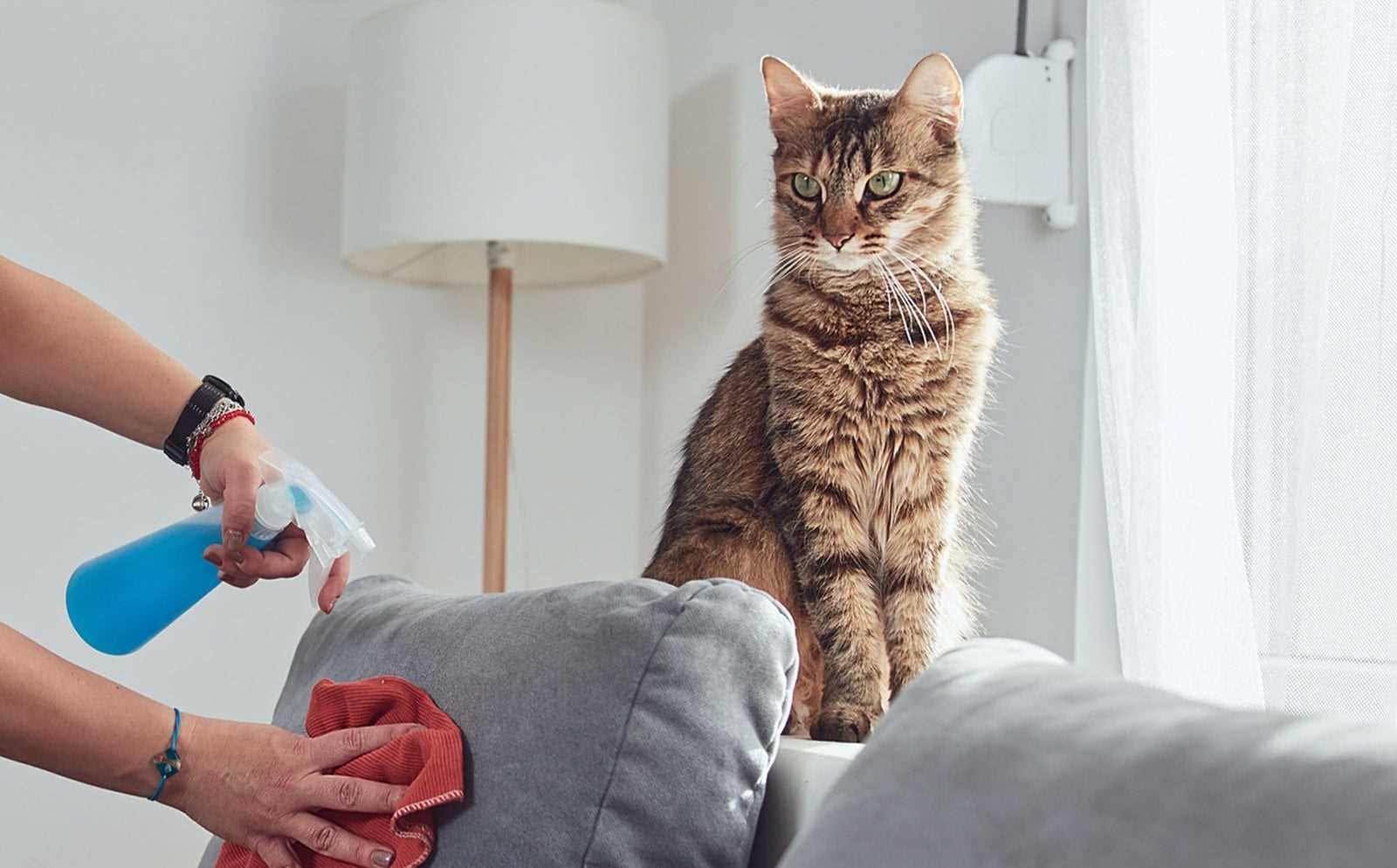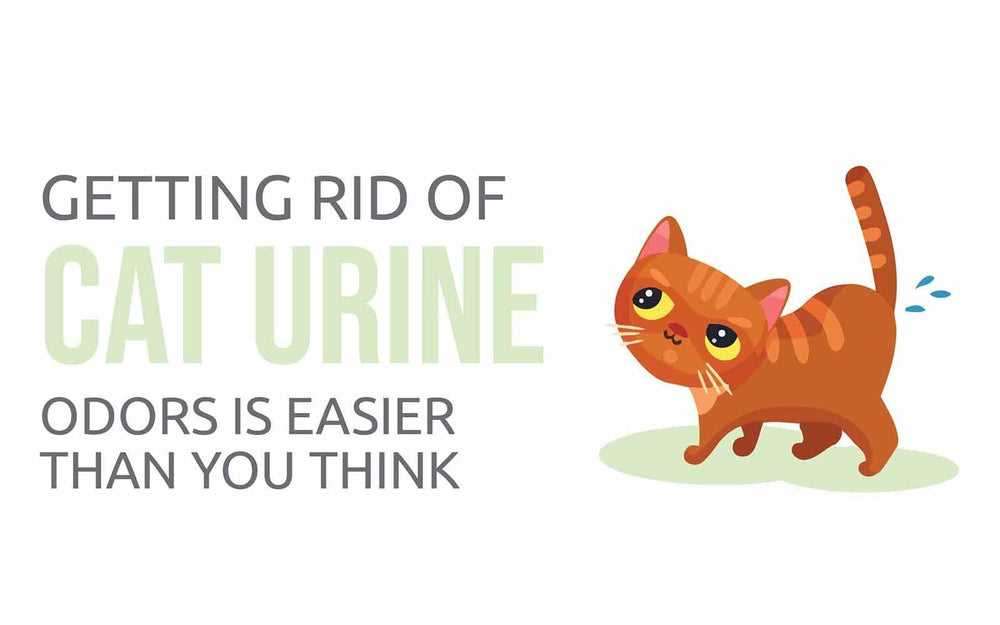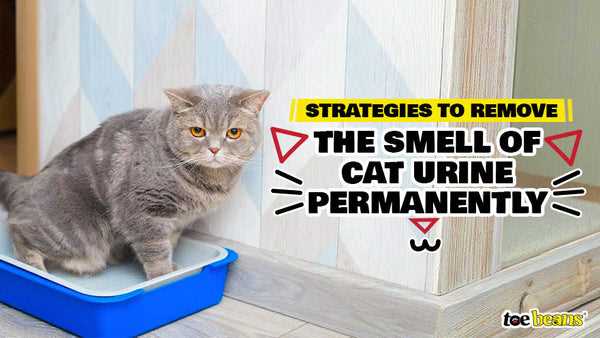



Begin with thorough cleaning of all surfaces. Use an enzymatic cleaner specifically designed for pet-related odors, as it breaks down the substances causing the unpleasant scent. Apply it generously on carpets, upholstery, and any fabric that may have absorbed the aroma.
Next, focus on areas where my former housemate spent the most time. Pay special attention to corners, under furniture, and around litter boxes. It’s crucial to ensure that every nook and cranny is addressed.
Consider using baking soda as a natural deodorizer. Sprinkle it over carpets and let it sit for several hours before vacuuming. This step helps to neutralize lingering odors effectively.
Ventilation plays a key role as well. Open windows and doors to allow fresh air to circulate through your space. If possible, use a fan to expedite the process. This simple act can significantly reduce the intensity of any remaining scent.
Finally, think about introducing air-purifying plants, which can help to improve the overall freshness of your environment while adding a touch of greenery. Choose species known for their air-cleaning properties to enhance the atmosphere in your home.
Identify the Source of the Odor in Your Home
First, inspect the areas where the previous feline resided. Focus on spots like carpets, upholstery, and corners where accidents might have occurred. Pay special attention to places that might retain moisture, as these can harbor lingering scents.
Utilize a black light to detect hidden stains. This tool reveals areas that are not visible in regular light, helping you pinpoint exact locations that require attention. Once identified, clean these spots thoroughly with appropriate cleaning solutions.
Don’t forget about furniture and bedding. Even if surfaces look clean, odors can seep into fabrics. Wash removable covers and consider steam cleaning larger items to ensure deep cleaning.
Check any nooks and crannies, especially behind appliances and under furniture. These areas often go unnoticed but can be culprits in retaining unpleasant aromas.
If you’re unsure about the source, ask a friend for a second opinion. Sometimes, a fresh nose can detect what you might have become accustomed to. Once the source is identified and addressed, you can focus on maintaining a fresh environment.
For more information on how to care for your furry friend’s health, consider exploring the best food for struvite crystals in cats.
Choose the Right Cleaning Products for Odors

Start with enzymatic cleaners specifically designed to break down organic materials. These products target proteins and bacteria, neutralizing unpleasant scents effectively. Look for options that are safe for various surfaces and pets.
For fabric and upholstery, a product containing baking soda can absorb lingering fragrances. Sprinkle it over the area, let it sit, and then vacuum it up. This method helps refresh textiles without harsh chemicals.
When dealing with hard surfaces, a mixture of vinegar and water serves as a natural deodorizer. Combine equal parts, apply it to the affected area, and wipe clean. The vinegar smell dissipates quickly, taking unwanted odors with it.
Odor-neutralizing sprays offer convenience for quick touch-ups. Choose ones that use natural ingredients without strong synthetic fragrances. This ensures a pleasant environment without overwhelming scents.
Lastly, avoid products with ammonia, as they can actually intensify the issue. Instead, focus on those that specifically advertise odor elimination for the best results. Always test new products on a small, inconspicuous area first to ensure compatibility.
Deep clean carpets and rugs to remove lingering odors
Vacuum thoroughly using a vacuum cleaner with a HEPA filter to capture particles and dander embedded deep within fibers. Make several passes to ensure no residue remains.
For a deeper clean, utilize a steam cleaner. Fill it with water and a pet-safe solution, then treat the affected areas. The heat helps break down and eliminate stubborn residues that regular cleaning might miss.
Consider a homemade solution: mix equal parts white vinegar and water in a spray bottle. Lightly mist the carpets after vacuuming, allowing it to sit for 10-15 minutes before blotting with a clean cloth. The vinegar neutralizes various odors, providing a fresh scent.
After cleaning, sprinkle baking soda over the carpets and rugs. Let it sit for several hours or overnight to absorb any remaining odors. Vacuum it up thoroughly afterward.
In areas where accidents may have occurred, apply enzyme-based cleaners specifically designed for pet issues. Follow the product instructions, ensuring the cleaner penetrates deep into the carpet fibers.
Finally, for persistent issues, professional cleaning services may be necessary. They have specialized equipment and products that can tackle even the most challenging odors.
While addressing odors, remember that maintaining a clean environment is crucial. Regularly cleaning and monitoring areas where pets frequent can prevent future problems. For more tips on managing challenging situations, check out this link: how to kill snails in a fish tank.
Wash and treat soft furnishings and upholstery

For freshening up those cozy spots around the house, here’s what you need to do:
- Remove all removable covers from cushions, pillows, and upholstery. Check labels for washing instructions.
- Use a high-quality laundry detergent with an enzyme formula. This helps break down organic compounds that contribute to unwanted odors.
- Wash items in hot water, if safe for the fabric. Hot water aids in eliminating lingering scents more effectively.
- For non-washable upholstery, sprinkle baking soda generously over surfaces. Let it sit for several hours or overnight to absorb odors.
- Vacuum the baking soda thoroughly. This will help lift away the absorbed odors.
- Consider using a fabric refresher spray made specifically for odor elimination. Test a small area first to ensure compatibility with your upholstery.
- Steam clean upholstery for deeper treatment. This can remove embedded particles and freshen up the fabric.
- After cleaning, let everything air out. Open windows or use fans to encourage airflow and help dry the fabrics.
Regular maintenance, like vacuuming and prompt attention to spills, will keep those soft surfaces fresh and inviting.
Use odor neutralizers and air fresheners strategically
Opt for enzymatic odor neutralizers specifically designed for pet-related issues. These products break down organic materials that cause unpleasant scents, effectively eliminating them rather than merely masking them.
- Apply the neutralizer directly on affected surfaces following the manufacturer’s instructions.
- Consider using a spray bottle for easy application in tight spaces or on upholstery.
- Allow sufficient time for the product to work; sometimes, multiple applications are necessary.
Utilize air fresheners that complement the neutralizers. Look for those with natural ingredients to avoid overwhelming fragrances that can irritate sensitive noses.
- Choose options with subtle scents, such as lavender or citrus.
- Place air fresheners strategically in areas prone to lingering odors, such as near litter boxes or in corners.
- Avoid strong chemical fragrances that can clash with the neutralizers.
Incorporate essential oil diffusers as a natural alternative. Select oils known for their deodorizing properties, such as tea tree or eucalyptus, but use them with caution around pets.
- Start with a few drops and monitor the response; some scents can be overwhelming.
- Ensure the diffuser is in a well-ventilated area to prevent concentrated odors.
Regularly rotate your air fresheners and neutralizers to maintain a fresh environment and prevent olfactory fatigue. This keeps the atmosphere pleasant without overstimulating the senses.
Inspect and Clean Hidden Areas Where Felines May Have Marked
Check behind furniture and appliances. These spots are often overlooked and can harbor unwelcome surprises. Move items to reveal areas where a previous tenant’s pet might have left traces.
Common Locations to Inspect
| Area | Cleaning Tip |
|---|---|
| Under the Couch | Use a flashlight to spot any stains and clean thoroughly with enzyme-based cleaners. |
| Behind the Refrigerator | Pull it out and check for residue. A mixture of vinegar and water can help eliminate odors. |
| Inside Closets | Items stored away can trap scents. Vacuum and wipe down shelves with a safe cleaner. |
| Window Sills | Check for any signs of marking. Use a cloth with a mild detergent to clean the surfaces. |
Investigate any cracks or crevices in walls, as they can also be hiding spots for unpleasant remnants. Use a flashlight to illuminate dark areas. Pay extra attention to corners and baseboards where a curious pet might have ventured.
Cleaning Strategies

Once you identify these locations, apply a combination of scrubbing and enzymatic cleaners specifically designed to neutralize odors. Allow these products to sit for the recommended time to break down the lingering traces effectively.
Regular inspections and cleaning routines will ensure that any hidden areas remain fresh and inviting, creating a pleasant environment for both myself and my humans.
Maintain a Regular Cleaning Routine to Prevent Future Odors
Establish a consistent schedule for cleaning your living space. I recommend vacuuming at least twice a week to keep dust and allergens at bay. Regularly changing the vacuum filter can enhance its performance and capture lingering particles.
Focus on high-traffic areas and spots where my fellow felines might have left their mark. Use a steam cleaner on carpets and upholstery monthly; it penetrates deep fibers and eliminates trapped odors. Don’t forget to launder pet bedding weekly using hot water to kill bacteria and remove any lingering scents.
Incorporate enzymatic cleaners into your routine. These specialized products break down organic matter, effectively neutralizing unpleasant fragrances. Apply them in areas prone to accidents or where you suspect previous pets may have been.
Keep an eye on litter boxes. Scoop daily and change litter regularly to maintain freshness. Disinfect the box weekly with a mild solution of vinegar and water to eliminate any residual odors.
Lastly, consider incorporating air purifiers with HEPA filters. They help trap particles and maintain a clean atmosphere. Place them in common areas to enhance air quality and reduce any unwanted essence.
FAQ:
What are some effective methods to eliminate cat odors left by a previous owner?
There are several methods to remove cat odors effectively. One popular approach is using enzymatic cleaners, which break down the compounds responsible for the smell. These cleaners can be found at pet stores or online. Another method involves using a mixture of vinegar and water, which helps neutralize odors. Baking soda can also be sprinkled on carpets or upholstery to absorb smells; leave it for a few hours before vacuuming. Regular cleaning of litter boxes and maintaining a fresh environment can also help prevent the buildup of odors.
How can I determine if the cat smell is coming from the carpet or other surfaces?
To identify the source of the cat smell, start by conducting a thorough inspection of your space. Check areas where the previous cat might have spent time, such as carpets, upholstery, and corners. A black light can be particularly useful, as it reveals stains and residues that are invisible to the naked eye. Once you’ve located the source, you can focus your cleaning efforts on those specific areas. If necessary, you may need to hire a professional cleaning service that specializes in pet odor removal for more persistent odors.
Are there any natural remedies to remove cat smells without using harsh chemicals?
Yes, there are several natural remedies you can use to eliminate cat odors. One common solution is a mixture of equal parts water and white vinegar, which can be sprayed on affected areas or used to wipe surfaces. Baking soda is another effective natural deodorizer; sprinkle it on carpets and leave it overnight before vacuuming. Additionally, activated charcoal can absorb odors and is often placed in small containers around the house. Essential oils, such as lavender or lemon, can also be diluted in water and used as a light spray to refresh the air.
How often should I clean to keep cat odors at bay after removing them?
To maintain a fresh environment after eliminating cat odors, regular cleaning is essential. Vacuuming carpets and upholstery at least once a week helps remove hair and dander that contribute to odors. Additionally, it’s important to clean litter boxes daily and wash any bedding or fabric that the cat may have used. Spot cleaning any new stains or accidents right away will prevent odors from becoming entrenched. Depending on your living situation, a deep clean every few months might also be beneficial to keep your home smelling fresh.









